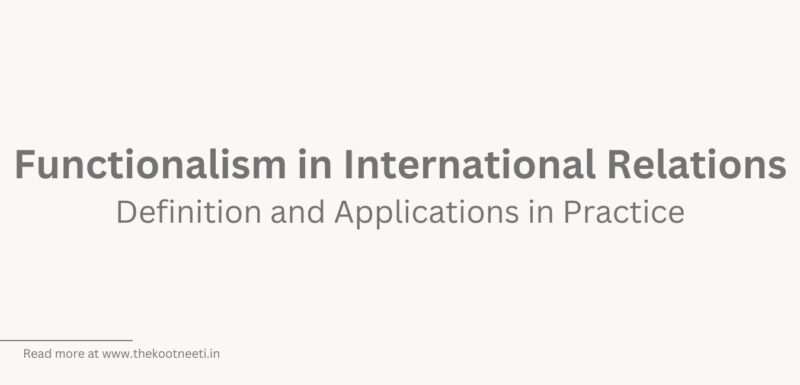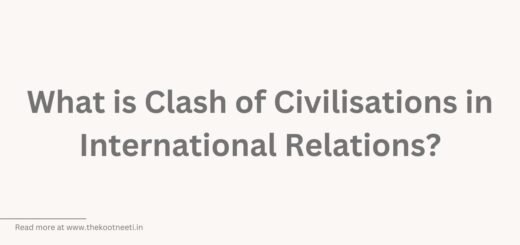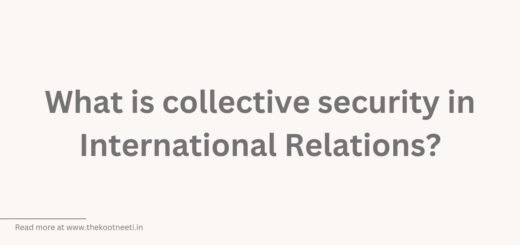Functionalism in International Relations; Definition and Applications in Practice

Functionalism is a theoretical approach to the study of International Relations (IR) that focuses on the way in which international organizations and regimes facilitate cooperation and coordination among states. According to functionalist theory, states are more likely to cooperate and work together when they have shared interests and when they have institutions and rules in place that facilitate cooperation.
Functionalists argue that international organizations and regimes play a key role in promoting cooperation and resolving conflicts among states. They believe that these institutions and rules can help to reduce uncertainty and manage potential conflicts, and that they can create a sense of shared identity and common purpose among states.
Functionalism is often contrasted with more traditional approaches to IR, such as realism, which emphasize the role of power and self-interest in shaping international relations. Functionalists argue that cooperation and interdependence can also play a significant role in international relations, and that international organizations and regimes can help to mitigate the negative effects of power politics.
Applications in practice
Here are a few examples of how functionalism has been applied in practice:
- The United Nations: The UN is a multilateral organization that aims to promote international cooperation and resolve conflicts peacefully. According to functionalist theory, the UN plays a useful role in helping to maintain the stability of the international system.
- The European Union: The EU is a regional organization that aims to promote economic and political integration among its member states. According to functionalist theory, the EU has helped to promote cooperation and stability among its member states by reducing trade barriers and promoting economic integration.
- The International Monetary Fund (IMF): The IMF is an international organization that provides financial assistance to countries in need in order to stabilize their economies and promote economic growth. According to functionalist theory, the IMF plays a useful role in promoting economic stability and cooperation among countries.
- The World Trade Organization (WTO): The WTO is an international organization that promotes free trade and the liberalization of global trade. According to functionalist theory, the WTO helps to promote cooperation and stability among countries by establishing rules for international trade and resolving disputes.
Difference between functionalism and realism
Functionalism and realism are two competing international relations theories that seek to explain how states interact with one another in the international system.
Functionalism is a theory that emphasizes the role of international institutions and organizations in promoting cooperation and stability among states. It argues that states have a vested interest in maintaining the stability of the international system, and that international institutions can play a useful role in facilitating cooperation and resolving conflicts.
Realism, on the other hand, is a theory that emphasizes the role of power and self-interest in shaping international relations. Realists believe that states are primarily motivated by their own security and economic interests, and that they will use their power to pursue these interests even at the expense of other states. Realists also believe that the international system is inherently competitive and that states must be prepared to use force to protect their interests.
Overall, functionalism tends to be more optimistic about the potential for international cooperation and the role of international institutions in promoting peace and stability, while realism is more skeptical and emphasizes the importance of power and self-interest in shaping international relations.
Also read: Realism in International Relations


















